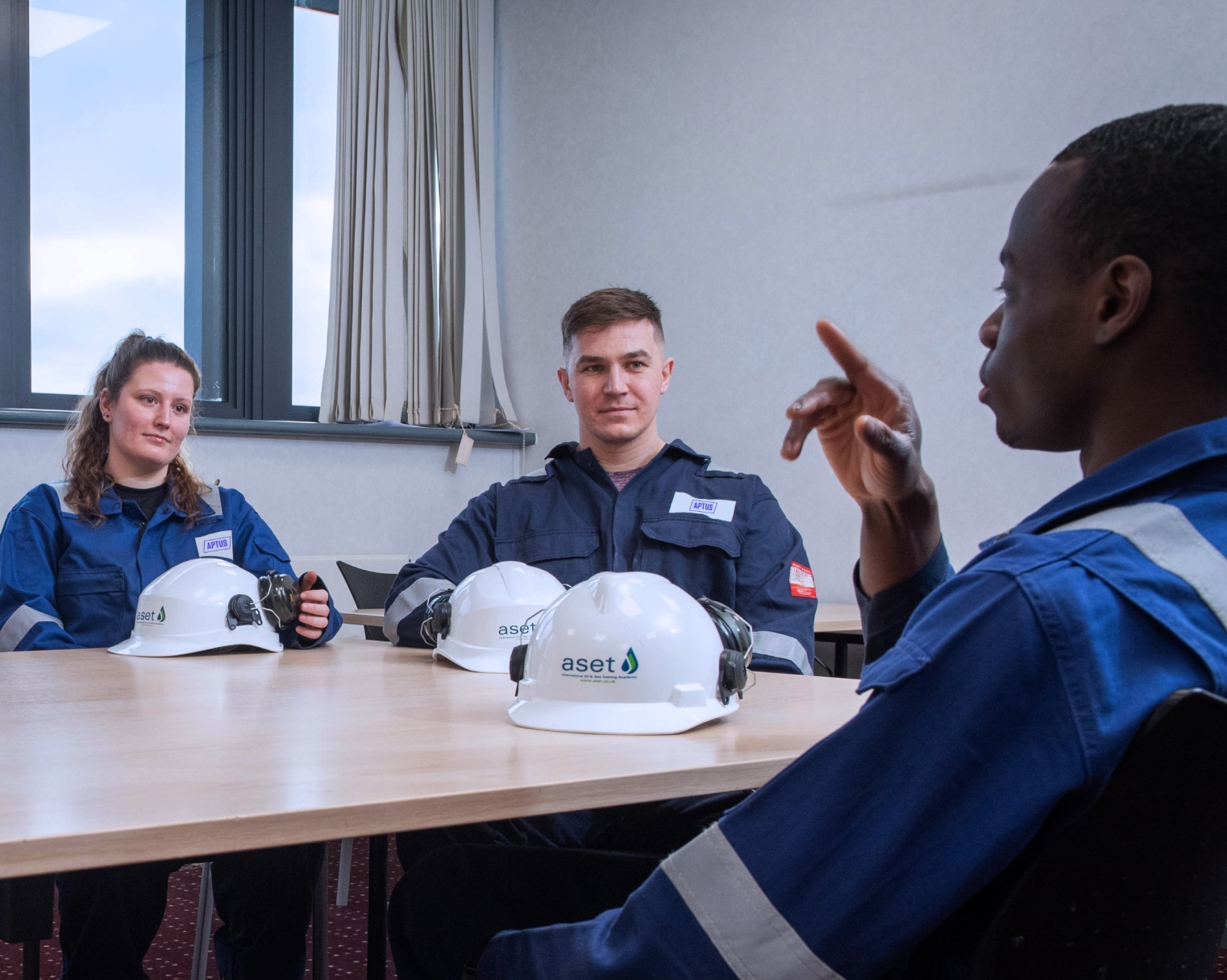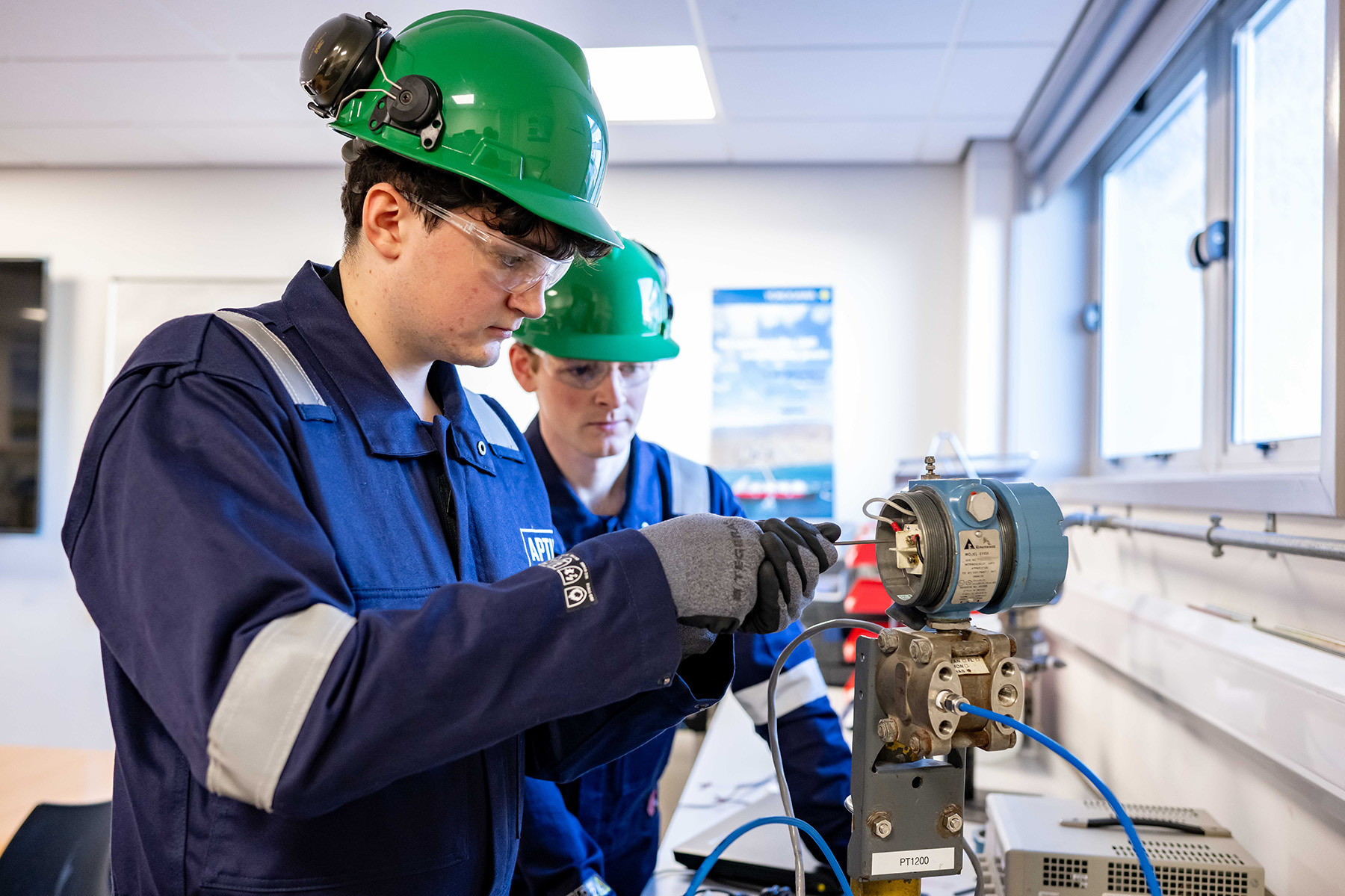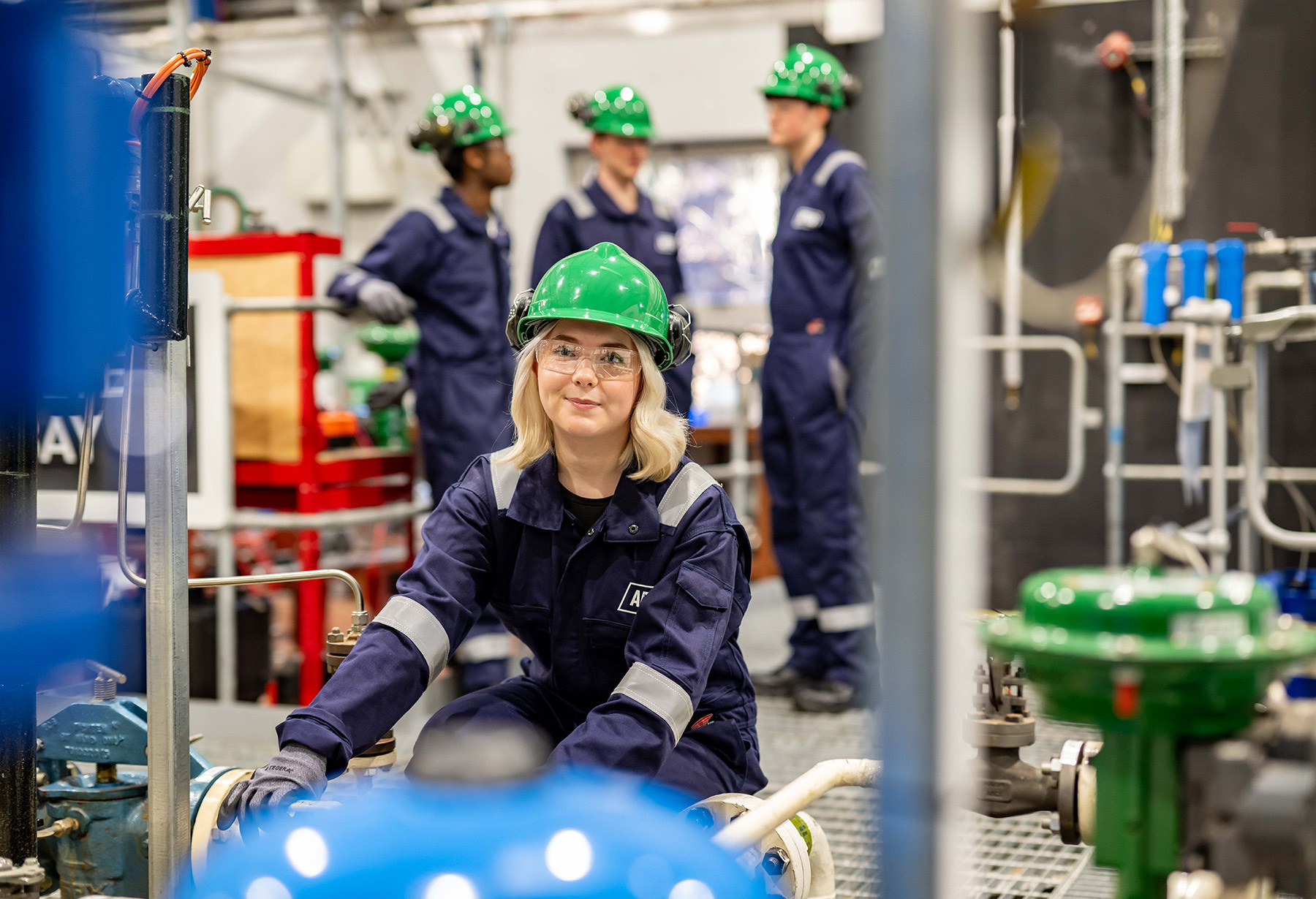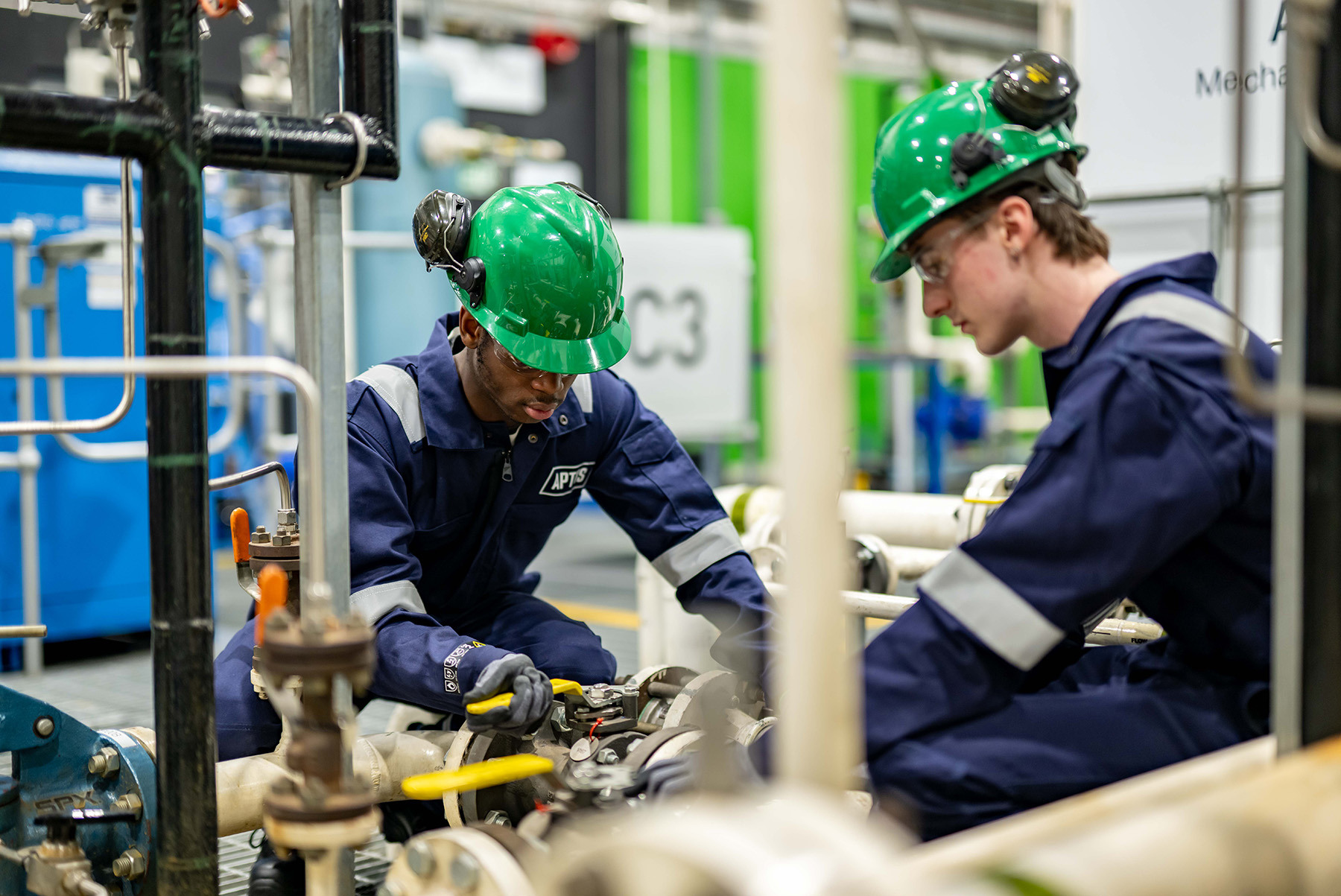A broad range of engineering theory and practical skills

During your studies you’ll learn a range of topics covering engineering first principles, as well as theory and practical material tailored to your chosen discipline.
At college
Your first 21 months will involve full-time study in a college where you’ll complete:
- Industry standard health and safety training
- Core/Meta skills
- A level 6 National Certificate (NC)
- Hydrocarbon theory
- A Performing Engineering Operations (PEO) vocational qualification at SCQF level 5
- A Higher National Certificate (HNC) focused on engineering content for your chosen discipline
- Various additional courses to give you the skills and knowledge related to working on engineering equipment, processes, engineering tasks and activities
- Further training focusing on industry-specific content and standards
- Renewable Energy Introductory Qualifications (OPITO route only)
- OPITO Global 2 – Plant Processing Qualification (OPITO route only)
Industry training
In your second year, you'll receive a wide range of industry-specific training to prepare you for offshore and on-site industrial environments. With a strong emphasis on safety, risk management and operational competence, these courses will include:
- Basic Offshore Safety Induction and Emergency Training (BOSIET): Essential offshore safety and emergency procedures, including helicopter safety and sea survival.
- Minimum Industry Safety Training (MIST): A fundamental safety course covering key safety practices for the oil and gas industry.
- Medical and Fitness Assessments: Includes Shoulder Width Measurement, OGUK Medical and Fit to Train certification, ensuring you're physically prepared for offshore work.
- Client Contractor National Safety Group (CCNSG) Safety Passport: Recognised safety qualification for contractors working on construction and engineering sites (ECITB only).
- Manual Handling Awareness: Training to prevent injuries and ensure safe handling of materials.
- Task-Based Risk Assessment: Skills to identify and manage risks in specific tasks to ensure workplace safety.
- Authorised Gas Tester: Training to safely test for hazardous gases in confined spaces and during operational activities.
- ISSOW/COWPA: Introduction to the Integrated Safe System of Work and Control of Work Permit Applications for safe operational practices.
- High Voltage Training (Electrical Discipline only): Specialised training for those working with high voltage electrical systems.
Employer placement and final qualification
After 21 months, during your third and fourth years, you will join your employer where you’ll consolidate the skills and knowledge gained during your college phase. During this work site phase, you’ll be working towards a competency-based qualification in your discipline. Once you’ve completed this, and the previous college phase qualifications, you will become certified as a Modern Apprentice.


